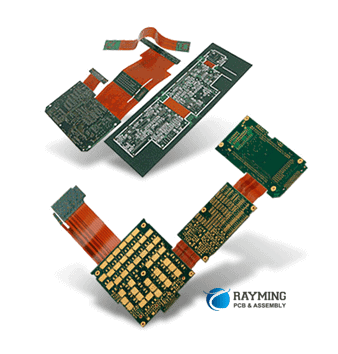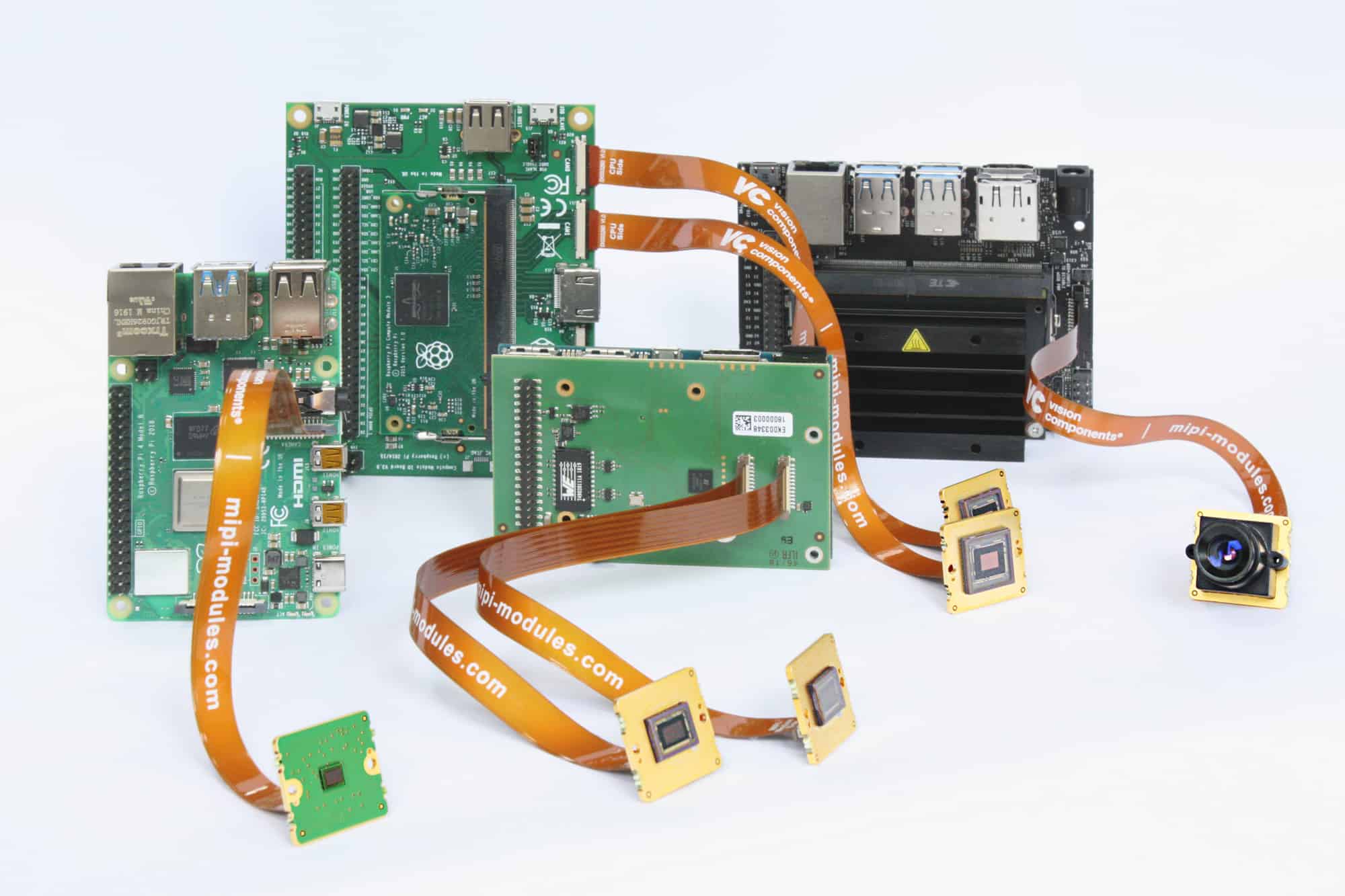The electronics manufacturing industry plays a crucial role in producing the high-tech products and devices that we use every day. From smartphones and laptops to TVs, gaming consoles, and home appliances, these companies are responsible for making the innovative electronics products that improve and simplify our lives.
The global electronics manufacturing services (EMS) market size was valued at USD 548.4 billion in 2020 and is projected to grow at a compound annual growth rate (CAGR) of 3.6% from 2021 to 2028. This growth can be attributed to factors like increasing demand for smart electronics, growth of IoT devices, and innovations in wearable technology.
This article will highlight the top 10 electronics manufacturing companies in the world right now based on revenue and global market presence. We will look at what makes these companies industry leaders and their contributions to electronics innovation. Understanding the major players allows us to see where the electronics manufacturing industry is headed.
Top 10 Electronic Manufacturing Companies
1. Foxconn
- Headquarters: Taiwan
- Revenue (2020): $166 billion
- Employees: Over 1 million
Foxconn, also known as Hon Hai Precision Industry, is the world’s largest electronics manufacturer. Headquartered in Taiwan, Foxconn operates several factories in China and other Asian countries.
The company is best known as the major assembler of Apple’s iPhone. Foxconn produces electronics for major companies including Apple, Sony, Nintendo, Xiaomi, HP, Dell, and many more. With over 1 million employees, Foxconn has established itself as the leading company in scale and manufacturing capabilities.
2. Pegatron
- Headquarters: Taiwan
- Revenue (2020): $141 billion
- Employees: Over 200,000
Pegatron is another major Taiwanese electronics company that spun off from Asustek in 2008. The company focuses on producing computers, consumer electronics, networking equipment and more.
Pegatron is a major assembler of Apple’s iPhone and other devices. The company has over 200,000 employees with most production facilities located in China. Pegatron has partnerships with top tech companies including Apple, Microsoft, Sony and more.
3. Flex
- Headquarters: Singapore
- Revenue (2020): $24 billion
- Employees: Over 155,000
Flex is one of the leading global providers of electronics design, engineering, manufacturing, and supply chain services. Formerly known as Flextronics, Flex operates an extensive network with over 100 facilities across 30 countries.
Flex provides innovative design, engineering, manufacturing and logistics services to companies in various industries from medical, automotive, mobility, cloud, and more. The company partners with major brands like GE, Nest, HP, Lenovo, Huawei and Fitbit.
4. Jabil
- Headquarters: Florida, United States
- Revenue (2020): $22.5 billion
- Employees: Over 260,000
Jabil is a leading American manufacturing services company operating over 100 facilities globally. Jabil provides comprehensive electronics product manufacturing services from design to production and supply chain management.
The company serves a wide range of industries including healthcare, automotive, cloud, aerospace, defense, computing and more. Jabil partners with major companies like Cisco, HP, Johnson & Johnson, Siemens, and Qualcomm.
5. Sanmina
- Headquarters: California, United States
- Revenue (2020): $6.7 billion
- Employees: Over 200,000
Sanmina provides electronics and mechanical manufacturing services to technology companies around the world. The company offers end-to-end manufacturing solutions from product design to logistics and repair services.
Based in California, Sanmina operates a network of manufacturing facilities in the Americas, Europe, and Asia. The company serves industries including communications, computing, multimedia, automotive, medical, defense, and clean technology.
6. Plexus
- Headquarters: Wisconsin, United States
- Revenue (2020): $3.4 billion
- Employees: Over 19,000
Plexus specializes in designing, manufacturing and servicing mid-to-low volume and higher complexity electronic products. The company provides engineering, manufacturing, logistics, supply chain and more for companies in the networking/communications, healthcare, industrial/commercial and defense/security/aerospace industries.
Plexus operates a network of facilities in the Americas, EMEA and Asia-Pacific regions. Some of their major customers include GE Healthcare, Philips, Lenovo, and Rockwell Collins.
7. Celestica
- Headquarters: Ontario, Canada
- Revenue (2020): $5.9 billion
- Employees: Over 20,000
Celestica is a leading electronics manufacturing services company serving the communications, enterprise, consumer, medical, aerospace, defense, and industrial sectors. The company offers services like design, engineering, manufacturing, hardware platform solutions, supply chain management and more.
Headquartered in Canada, Celestica operates a network of manufacturing and supply chain facilities across the Americas, Europe, and Asia. Celestica’s customers include companies like IBM, Dell, Cisco, Honeywell, and Motorola.
8. Compal Electronics
- Headquarters: Taiwan
- Revenue (2020): $37 billion
- Employees: Over 70,000
Compal Electronics is one of the major original design manufacturers in Taiwan. The company provides electronics manufacturing services from product development, component manufacturing to logistics management.
Compal is a major supplier and manufacturing partner for large PC companies like Dell, HP Inc, and Lenovo. The company also works with other tech giants like Amazon, Google, and Acer. Compal operates manufacturing facilities in China, Vietnam, Mexico and Poland.
9. Quanta Computer
- Headquarters: Taiwan
- Revenue (2020): $38 billion
- Employees: Over 90,000
Quanta Computer is a leading notebook computer original design manufacturer (ODM) based in Taiwan. The company designs, manufactures, and markets laptops, servers and mobile phones for global brands.
Major customers of Quanta Computer include Apple, Dell, HP, Amazon, Google, Cisco, Fujitsu, Lenovo, Acer and more. Quanta operates manufacturing hubs across China, Taiwan, and the Americas to serve its partners worldwide.
10. Inventec
- Headquarters: Taiwan
- Revenue (2020): $7.2 billion
- Employees: Over 60,000
Inventec is a Taiwanese company that provides OEM, ODM and EMS services to produce notebooks, servers, mobile and IoT devices. Inventec partners with major brands like HP, Dell, Lenovo, Xiaomi, Huawei, Amazon and Microsoft.
The company has an extensive manufacturing network with over 30 facilities in Taiwan, China, Mexico, Czech Republic and Japan. Inventec is focused on developing innovative solutions for smart home, automotive and other next-gen technologies.

What Makes These Companies Industry Leaders
The top electronics manufacturing companies have certain shared traits that allow them to dominate the EMS industry:
- Global production network – Most leading companies operate an extensive network of manufacturing facilities around the world to support customers globally. Having facilities close to key markets allows for flexibility and speed.
- Technology expertise – They employ thousands of engineers to drive technology innovation. Their expertise in hardware design, software, AI and sophisticated manufacturing processes enables them to handle complex electronics projects.
- Scale and capabilities – The large scale and breadth of capabilities, from prototyping to full production, allows them to be a one-stop provider for customers. Their capacity supports high-volume production.
- Strong relationships – These EMS providers have cultivated close partnerships with top tech brands to better understand and meet their manufacturing needs. Their experience gives them an edge.
- Supply chain optimization – With their global reach and resources, leading EMS companies can optimize complex electronics supply chains to ensure continuity of production.
Key Contributions to Electronics Innovation
The major electronics manufacturing services companies have been instrumental in bringing many of today’s electronics innovations to life:
- Launching new categories – They enabled the mass production of products that defined or popularized new device categories, like smartphones, tablets, wearables, smart speakers and more.
- Driving down costs – Their manufacturing expertise and scale drove down production costs, allowing many electronics to reach mainstream adoption.
- Enabling customization – Flexible manufacturing processes allowed for mass customization, such as producing computers to customers’ specifications.
- Supporting startups – Startups with groundbreaking product ideas have leveraged these manufacturing partners to quickly prototype and scale production.
- Accelerating time-to-market – Their expertise in design, engineering and production helped companies dramatically shorten the product development cycle.
- Pushing capabilities – Pushing the envelope on miniaturization, performance, efficiency, precision, speed and more to create state-of-the-art electronics.
- Optimizing supply chains – Leveraging their global reach and logistics expertise to maintain resilient supply chains. This enabled continuity of production and availability of electronics.
The Future of Electronics Manufacturing
The electronics manufacturing services industry will continue evolving to enable the next generation of electronics innovation. Here are some trends shaping the future landscape:
- Rise of EMS in medical, automotive and industrial – More EMS adoption beyond consumer electronics into highly regulated spaces like medical, automotive, aerospace and industrial.
- Growth of smart electronics – With IoT growth, demand for connected sensors, controllers and edge devices integrated into products, infrastructure and cities.
- Focus on sustainability – Increasing pressure for electronics supply chains to reduce waste and carbon emissions through efficiency, renewables and circular resource flows.
- Advanced manufacturing automation – Wider deployment of advanced robotics, AI and data-driven manufacturing to increase speed, precision and efficiency.
- Demand diversification – Expanding manufacturing in new markets to diversify risks beyond current China-centric supply chains.
- Acquisitions and consolidation – Larger EMS providers acquiring competitors and tech startups to expand capabilities and capacity to serve new growth areas.
The top electronics manufacturing companies have demonstrated the capability to adapt to change and enable the production of cutting-edge electronics decade after decade. Their manufacturing leadership will continue driving many of the technological innovations that take us into the future.
Frequently Asked Questions
Q: Which country is the largest producer of electronics?
A: China is currently the world’s largest producer of electronics. According to Investopedia, China accounted for over 40% of global electronics production in 2020. Many major electronics manufacturing services providers have extensive operations in China due to its well-developed electronics manufacturing ecosystem.
Q: Which companies assemble the iPhone?
A: The iPhone is primarily assembled by Foxconn and Pegatron, two of the largest electronics manufacturing services companies that are based in Taiwan. They operate major iPhone assembly plants in China. Hon Hai Precision Industry (Foxconn’s parent company) has factories in Henan and Zhengzhou that assemble a majority of iPhones. Pegatron also has assembly facilities for the iPhone in Shanghai and Kunshan, China.
Q: Which type of products do EMS companies manufacture?
A: Electronics manufacturing services (EMS) providers manufacture a vast range of electronics products and components. Major categories include:
- Computers – laptops, desktops, tablets, servers
- Mobile devices – smartphones, feature phones, accessories
- Networking/telecom equipment – routers, switches, base stations
- Consumer electronics – TVs, gaming consoles, smart home devices
- Storage/memory devices
- Medical devices and equipment
- Automotive electronics
And many more products involving PCB assemblies, cables, precision enclosures and other electronic components.
Q: What are the benefits of outsourcing manufacturing to an EMS provider?
A: The benefits include:
- Cost savings – No need for capital investment in facilities and equipment
- Faster time-to-market – Leverage expertise and infrastructure for quick ramp up
- Flexibility – Scale production up or down to meet changing demand
- Focus on core competencies – Frees up resources to focus on design vs manufacturing
- Supply chain optimization – Leverage EMS supply chain resources and scale
- Quality and regulatory compliance – Experience following the highest standards
Q: What are the latest innovations in electronic manufacturing?
A: Some latest innovations transforming electronics manufacturing include:
- Advanced robotics and automation using AI for faster and more precise manufacturing
- 3D printing for prototyping and volume production with less waste
- Big data analytics to optimize production planning and efficiency
- Virtual reality for collaborative design and testing of manufacturing processes
- Miniaturized flexible electronics manufactured with novel materials and printing techniques
- Sustainable manufacturing reducing waste, emissions and environmental impact






Leave a Reply